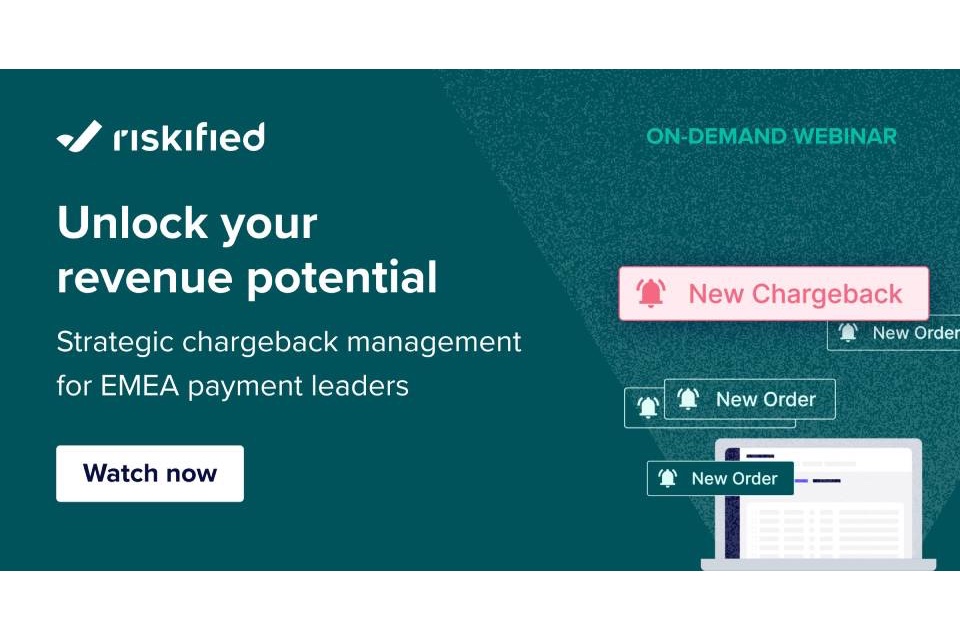WEBINAR: Unlock your revenue potential – Strategic chargeback management for EMEA payment leaders

Equip yourself with essential tools to safeguard profits from first-party fraud About this Riskified webinarAs chargebacks are projected to reach $165 billion by the end of 2024, ecommerce payments professionals are facing an unprecedented challenge—yet most are leaving 40% or more of disputes uncontested, leading to substantial revenue losses. This webinar will dive into the […]
WEBINAR: Unlock your revenue potential – Strategic chargeback management for EMEA payment leaders

As chargebacks are projected to reach $165 billion by the end of 2024, ecommerce payments professionals are facing an unprecedented challenge—yet most are leaving 40% or more of disputes uncontested, leading to substantial revenue losses. This webinar will dive into the root causes, including the rise of first-party fraud and why neglecting to fight chargeback […]
90% of online retailers losing money to policy abuse

Policy abuse–behaviours such as excessive returns, refund scams such as claiming an item was not received or returning empty boxes, abusing promotions like coupon codes or loyalty program rewards, or reselling limited-inventory items is soaring, with 90% of online merchants believing the issue is a significant problem for their bottom lines. That’s according to Riskified’s […]

